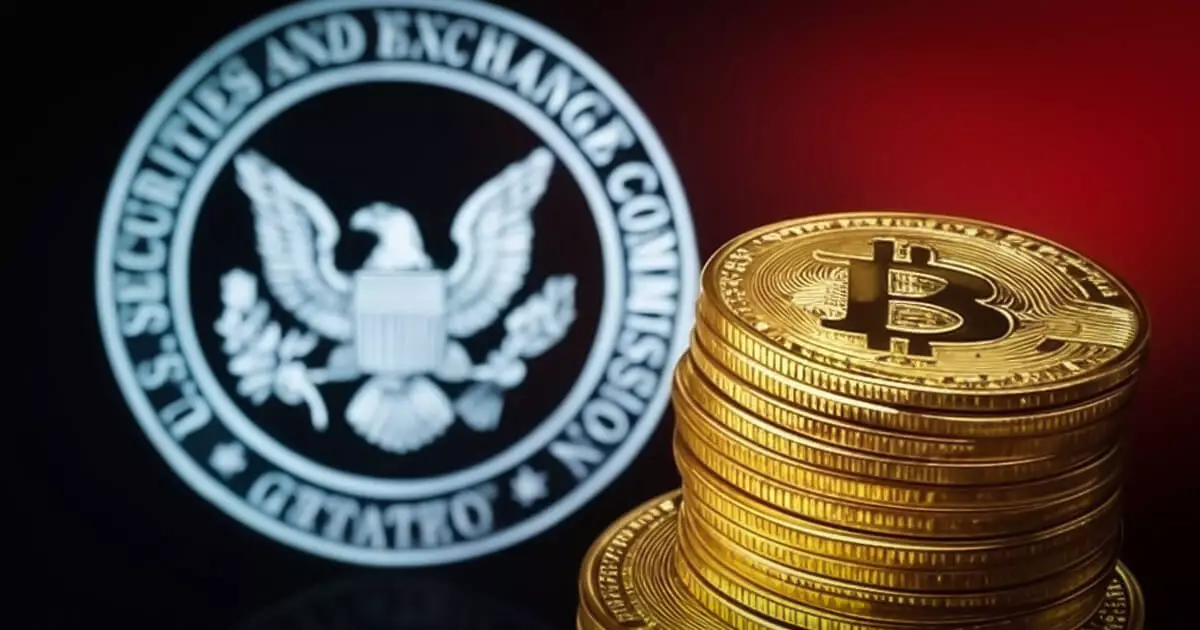With the impending transition of power following Donald Trump’s election as President, significant shifts in U.S. cryptocurrency regulation are on the horizon. Reports suggest that the U.S. Securities and Exchange Commission (SEC) is poised to reassess its current enforcement strategies concerning cryptocurrency firms, a move that could reshape the future of this burgeoning industry. This article delves into the implications of these expected changes and their potential impact on cryptocurrency regulation.
The SEC, traditionally known for its strict enforcement actions against cryptocurrency firms, appears to be entering a new era. Reports indicate that SEC commissioners Hester Peirce and Mark Uyeda, who have both expressed a more lenient attitude towards the crypto sector, are advocating for a clearer framework that delineates when cryptocurrencies should be classified as securities. This could mark a significant departure from past policies that often left firms in a state of uncertainty regarding their regulatory obligations.
Hester Peirce, also known as “Crypto Mom,” has been a vocal supporter of the cryptocurrency industry. Her push for regulatory clarity resonates particularly strong in an environment where ambiguity has stifled innovation. With the right changes, she and Uyeda could effectively catalyze a more conducive regulatory environment that encourages development within the crypto space rather than stifling it.
A crucial aspect of the expected changes is the review of current enforcement cases, particularly those involving major players like Coinbase and Kraken. Some experts believe that the SEC may opt to settle or even dismiss cases that do not involve allegations of fraud, which would represent a notable shift in the agency’s strategy. Such a pivot has potential advantages; easing regulatory pressure could empower cryptocurrency firms to innovate and expand without the constant shadow of litigation hanging overhead.
However, not everyone is convinced that these changes will come easily or quickly. According to industry insiders, achieving consensus on crypto regulations will likely be a prolonged process, as differing perspectives on the classification of digital assets and regulatory approaches remain pronounced among stakeholders. The negotiations could drag on for months, leaving firms in a prolonged state of ambiguity.
The Role of Political Influence in Regulation
The anticipated changes also raise essential questions about the political dimensions of regulatory processes. Critics fear that relaxing enforcement actions could lend a hand to the politicization of the SEC’s decision-making. This could lead to a scenario where regulatory actions are swayed more by political agendas than by legal and economic imperatives. The specter of undue political influence undermines the credibility and integrity of the SEC as a regulatory body.
Legal experts caution that an abrupt halt to current enforcement actions or a mass dismissal of cases could set a precarious precedent. Such a move might embolden other sectors and industries to seek similar leniency, complicating the SEC’s mission of protecting investors and ensuring fair markets. The delicate balance of regulation and innovation could be jeopardized, and the long-term implications on the regulatory landscape might prove precarious.
The Importance of Credibility and Stability in Regulation
As the SEC looks to navigate this evolving landscape, maintaining its credibility will be paramount. Philip Moustakis, a former SEC attorney, warns that unprecedented moves to cease enforcement actions can have lasting repercussions. If the SEC is perceived as selectively enforcing regulations based on political affiliations rather than firm legal standards, its authority could be further eroded.
Meanwhile, experts like Robert Cohen note that the SEC might reopen settlement negotiations in ongoing cases, fundamentally altering the relationship between the agency and cryptocurrency firms. This shift in strategy could lay the groundwork for a more cooperative regulatory atmosphere, providing much-needed clarity for firms navigating the murky waters of cryptocurrency law.
The anticipated reevaluation of cryptocurrency regulation by the SEC is a pivotal moment for the industry. With the potential for significant policy changes under the leadership of new commissioners aligned with a more lenient stance, the future of cryptocurrency in the United States could shift dramatically. While opportunities for innovation and growth abound, the sector must be cautious of the delicate balance between regulation and freedom. As stakeholders prepare for these changes, it is essential to advocate for a regulatory framework that is both clear and equitable, ensuring the long-term success and stability of the cryptocurrency environment in the U.S.

